Are you concerned about belly fat? If so, you may want to look at your dietary habits.
According to a 2019 study, proper dietary habits that included consuming certain nutrients were “significantly inversely correlated with a change in the visceral fat area.”
The visceral fat area refers to the fat around the organs in your abdominal area and displays as belly fat.
Now, you may think that the concern around belly fat is superficial, but the reality is that excess fat around the stomach area can have some serious health consequences. In fact, a 2020 study linked excess belly fat to a higher risk of early death.
So, how can we protect our health and lose belly fat? Well, we know that dietary habits can assist and with supplements now being part of an average person’s diet, the following supplements may help you get rid of that pesky belly fat.
5 Supplements To Burn Belly Fat
1. Green tea extract
When you think of compounds that can help with weight loss, green tea is always going to be top of that list for one of two reasons. One, it contains caffeine, which boosts your metabolic rate and helps your body burn fat.
Green tea also contains catechins, which have also been found to encourage fat-burning in the body.
With these two fat-burning components, it’s no wonder that research has found an association between green tea and weight loss.
A 2020 study focused on overweight middle-aged men undertaking endurance training. Researchers found that participants who took a green tea extract supplement alongside their training experienced greater improvements in belly fat, body weight, body mass index, and body fat percentage compared to others.
Nature’s Nutrition Green Tea Extract Capsules
2. Turmeric
A staple in the kitchen, especially for those who enjoy savory dishes, turmeric can help reduce belly fat, thanks to one compound that gives it its golden-orange color – curcumin.
Among patients with metabolic syndrome, curcumin intake was found to significantly reduce BMI, weight, waist circumference, and levels of the hunger hormone leptin.
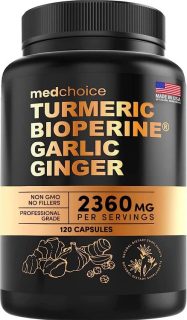 Medchoice 4-in-1 Turmeric Supplement
Medchoice 4-in-1 Turmeric Supplement
3. Vitamin A
According to a study published earlier this year, researchers concluded that vitamin A helps regulate body fat, with the study sharing that excess belly fat was associated with lower levels of vitamin A.
Speaking to Newsweek, Kayleen Eslinger, a licensed registered dietitian (RD) at the Medical Offices of Manhattan in New York City, added that a vitamin A deficiency has been noted to be more prevalent in those who are obese. She adds that this is most likely due to a diet low in foods packed with vitamin A.
Aside from supplements, Eslinger says you can find vitamin A in a range of foods, such as leafy green vegetables like kale, spinach, and broccoli, and vegetables like sweet potatoes, carrots, and squash.
Bronson Vitamin A
4. Vitamin B-Complex
B vitamins are the most important vitamins for your body as they are involved in so many important processes that include brain function, energy regulation as well as cellular health and function. B vitamins are also necessary for a healthy metabolism, which is another win for weight management, as a slower metabolism can be responsible for stubborn belly fat.
There are various B vitamins that can help with weight loss, and the most notable are thiamine (vitamin B1) and cobalamin (vitamin B12), with one 2020 study showing that low levels of vitamin B12 were associated with excess body fat.
In addition to supplements, you can also get your dose of B vitamins from bananas, beans, eggs, lentils, milk, lean meat, whole grains, and potatoes.
NATURELO Vitamin B Complex
5. Vitamin D
Known as the sunshine vitamin because that’s the best way to get it, vitamin D plays a pivotal role in keeping our bones and hormonal levels healthy. However, that’s not all that it’s good for. Research has found that vitamin D may help with belly fat.
Eslinger explains that vitamin D regulates the hunger hormone leptin, which “controls hunger signals and fat storage in the body,”. This suggests that low levels of vitamin D may disrupt leptin production, which then causes uncontrolled hunger cues that lead to increased intake and ultimately weight gain.
Research has acknowledged the high prevalence of vitamin D deficiencies in obese individuals, suggesting that maintaining healthy levels of vitamin D can help one manage their weight.
A study found in The American Journal of Clinical Nutrition revealed that overweight and obese adults taking vitamin D supplements lost significantly more stomach fat than those who did not.
While you can get vitamin D from the sun, some people live in areas where the sun is not always shining, hence the use of supplements. Additionally, there are food sources that can provide vitamin D. These include cod liver oil, egg yolks, fish, fortified cereals, fortified milk, sardines, tuna, salmon, and yogurt.
Solgar Vitamin D3
There is no pill for belly fat
As much as supplements help supplement your body with nutrients that can assist in your weight loss journey, it is important to remember that there is no pill for weight loss. Just like there is no one meal or one exercise.
If you really want to experience sustainable weight loss, then you need to incorporate supplements with consistent exercise and a healthier diet. Additionally, it’s also advisable to speak to your doctor and dietician about your weight loss journey. Be sure to inquire about the use of supplements before you begin taking them.
Want to know more?
Fancy a cup of tea?
If you’re struggling with shrinking belly fat, then the answer is yes, as drinking tea can help you burn fat around your stomach area.
References
Akbari, M., Lankarani, K. B., Tabrizi, R., Ghayour-Mobarhan, M., Peymani, P., Ferns, G., Ghaderi, A., & Asemi, Z. (2019). The Effects of Curcumin on Weight Loss Among Patients With Metabolic Syndrome and Related Disorders: A Systematic Review and Meta-Analysis of Randomized Controlled Trials. Frontiers in pharmacology, 10, 649. https://doi.org/10.3389/fphar.2019.00649
Bagheri, R., Rashidlamir, A., Ashtary-Larky, D. et al. Effects of green tea extract supplementation and endurance training on irisin, pro-inflammatory cytokines, and adiponectin concentrations in overweight middle-aged men. Eur J Appl Physiol 120, 915–923 (2020). https://doi.org/10.1007/s00421-020-04332-6
Boachie, J., Adaikalakoteswari, A., Samavat, J., & Saravanan, P. (2020). Low Vitamin B12 and Lipid Metabolism: Evidence from Pre-Clinical and Clinical Studies. Nutrients, 12(7), 1925. https://doi.org/10.3390/nu12071925
Góes, É., Cordeiro, A., Bento, C., & Ramalho, A. (2023). Vitamin A Deficiency and Its Association with Visceral Adiposity in Women. Biomedicines, 11(3), 991. https://doi.org/10.3390/biomedicines11030991
Jayedi, A., Soltani, S., Zargar, M.S., Khan, T.A. and Shab-Bidar, S. (2020). Central fatness and risk of all cause mortality: systematic review and dose-response meta-analysis of 72 prospective cohort studies. BMJ, p.m3324. doi:https://doi.org/10.1136/bmj.m3324.
Ozato, N., Saito, S., Yamaguchi, T., Katashima, M., Tokuda, I., Sawada, K., Katsuragi, Y., Imoto, S., Ihara, K., & Nakaji, S. (2019). Association between Nutrients and Visceral Fat in Healthy Japanese Adults: A 2-Year Longitudinal Study Brief Title: Micronutrients Associated with Visceral Fat Accumulation. Nutrients, 11(11), 2698. https://doi.org/10.3390/nu11112698
Rosenblum, J.L., Castro, V.M., Moore, C.E. and Kaplan, L.M. (2012). Calcium and vitamin D supplementation is associated with decreased abdominal visceral adipose tissue in overweight and obese adults1234. The American Journal of Clinical Nutrition, [online] 95(1), pp.101–108. doi:https://doi.org/10.3945/ajcn.111.019489.
Vranić, L., Mikolašević, I., & Milić, S. (2019). Vitamin D Deficiency: Consequence or Cause of Obesity?. Medicina (Kaunas, Lithuania), 55(9), 541. https://doi.org/10.3390/medicina55090541


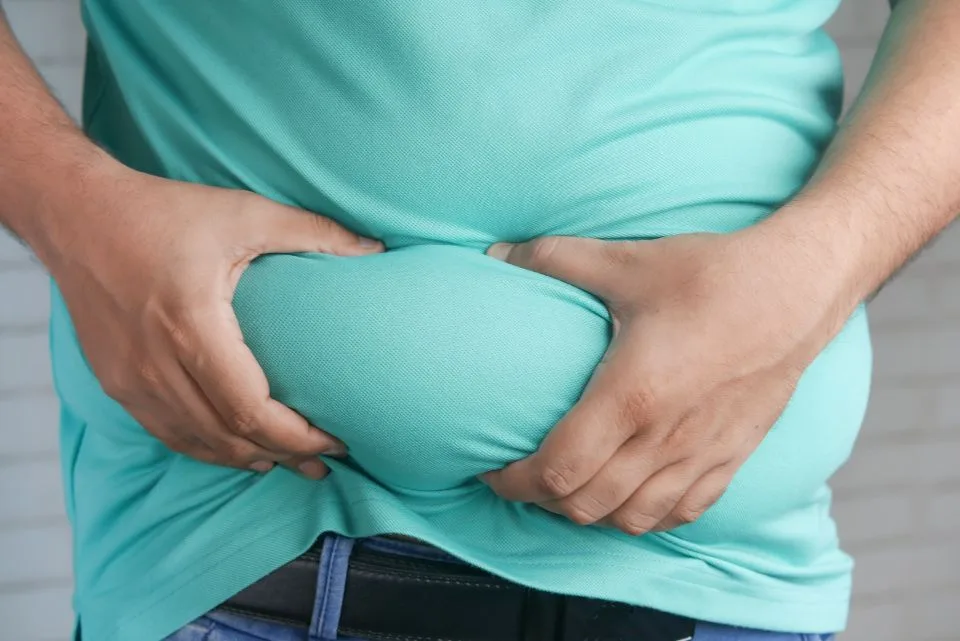
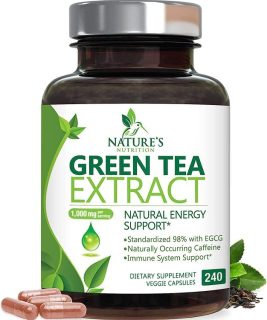
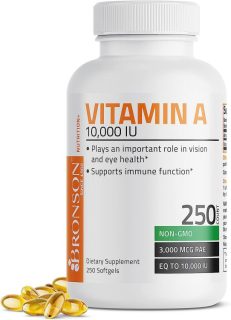
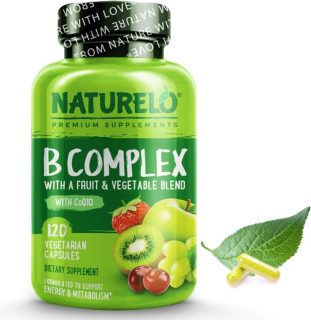

![women [longevity live]](https://longevitylive.com/wp-content/uploads/2020/01/photo-of-women-walking-down-the-street-1116984-100x100.jpg)










